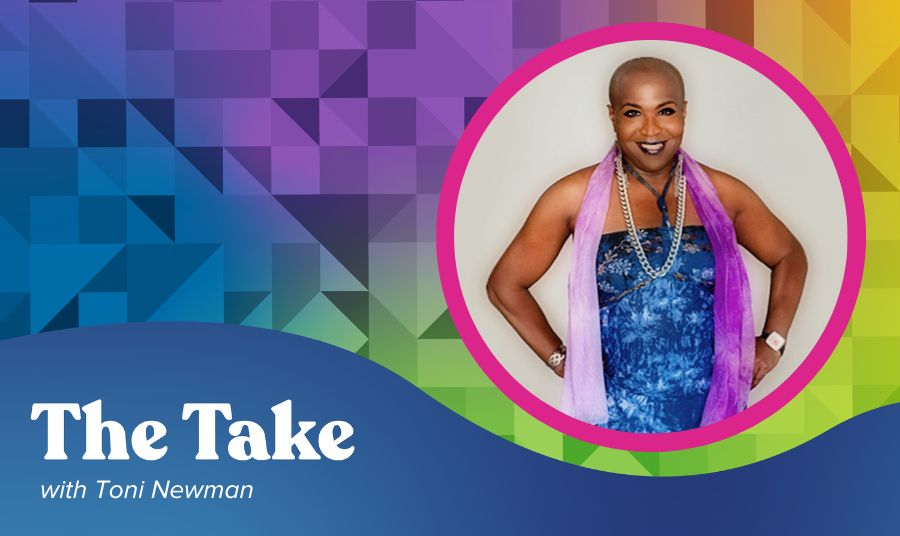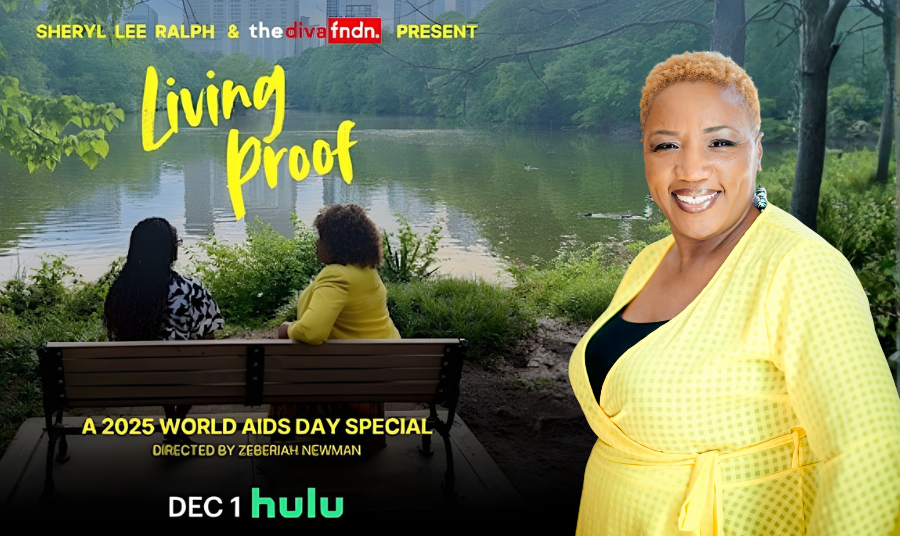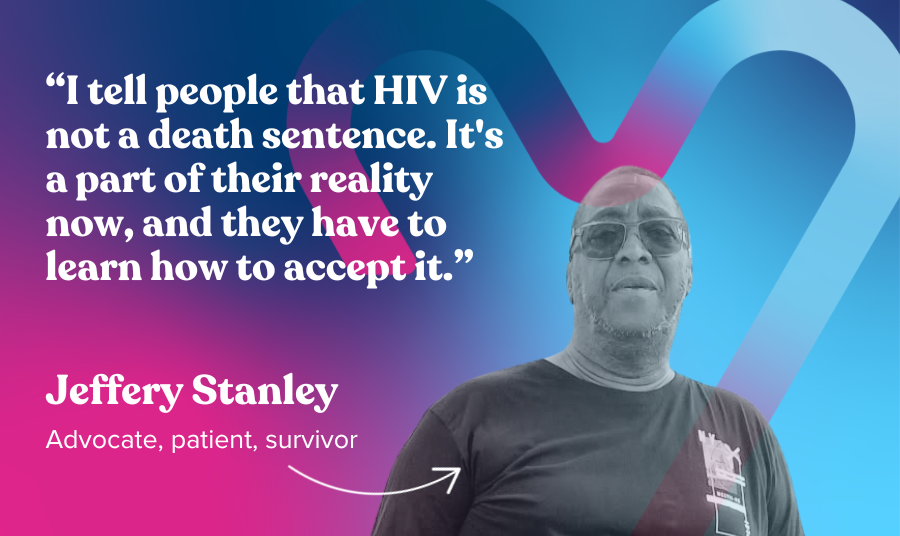Glen: Toni, it was great to see you at the National Minority AIDS Council (NMAC) Biomedical HIV Prevention Summit, and congratulations on your position as Director of NMAC’s new Coalition for Justice and Equality Across Movements! That’s a terrific fit for you.
To kick things off, let’s talk about the fact that it’s Pride month. I was thinking about my first Pride back in 1975. It was incredibly emotional and not commercial in any way. Almost 50 years later, it’s completely commercialized. But with nearly 500 pieces of legislation on the docket targeting LGBTQ+ civil and medical rights, it feels like we are back to the beginning of the fight. Pride is not just a party anymore. How do we get that message across—that we’ve got to do some serious work?
Toni: That’s a great question, Glen, and that’s why I’m at NMAC as the new director of the Coalition for Justice and Equality Across Movements. I agree it’s not just a party anymore; they are not playing. With almost 500 bills that are anti-LGBTQ in legislation, they are really coming for the LGBTQ+ community, and the T especially. They’re trying to take away any freedoms my community—the trans community since I am a trans woman of color—have.
The coalition is uniting with other advocacy powerhouses to strategically counter the growing vitriol against vulnerable and marginalized communities. I’m trying to get people with power and money behind me to say, “Let’s fight, baby.” I may not win, but I’m going to give all my soul and spirit to fight back.
So, Pride month this year… I’m celebrating. I’m optimistic, but yes, there is a fight here. It’s not just about drinking wine and waving the flag. It’s about keeping our freedom and those of our younger siblings coming up the pipeline.
The coalition is uniting with other advocacy powerhouses to strategically counter the growing vitriol against vulnerable and marginalized communities. I'm trying to get people with power and money behind me to say, 'Let's fight, baby.'
Toni Newman
Director, Coalition for Justice and Equality across Movements, National Minority AIDS Council
Building bigger, louder voices through collective advocacy
Glen: Let’s talk more about the coalition’s goal to unite other national movement leaders and support the collective with state-of-the-art communications and community mobilization strategies. As I’ve served on the board of AIDS United and other organizations, I’ve noticed that many civil and health equity issues are linked. It’s not just about race, abortion, or gun rights. These causes meld into one issue connected by social determinants of health. Together, their respective advocacy organizations must get out there and collaborate to build bigger, louder voices.
Toni: That’s what I was hired to do. I’ve been meeting with the AMA, Planned Parenthood, and the NAACP [there are currently 40 coalition members]. Health equity for all, regardless of race, sex, or gender, is our mission at NMAC. Yes, I love the LGBTQ+ community. Yes, I love the HIV community. But it’s much bigger now, and we need to come together.
And stakeholders from these other advocacy organizations agree. I thought they would say, “Why the hell are you here?” But when I explain that the goal is to join forces, they’re on board. Because it involves all of us, Glen. Women’s rights, Black rights, gun rights, immigrant rights—those violating people’s rights are trying to strip down and separate these groups. We’ve got to come together under the auspices of health equity for all.
I tell these groups, “I don’t ask you to support trans rights, but you do believe every American deserves health equity,” and they agree. So, there is a common bond. Someone might be against gays because of God or whatever their situation is, but everyone deserves health equity. That’s what unifies all these groups within the coalition.
Many civil and health equity issues are linked. These causes meld into one issue connected by social determinants of health. Together, their respective advocacy organizations must get out there and collaborate to build bigger, louder voices.
Glen Pietrandoni, chief advocacy officer, Avita Care Solutions
Law school and the legal battle for health equity
Glen: So, what’s this I hear about you going to law school?
Toni: Man, listen, I started law school back when I was director of development at Maitri Compassionate Care. So, I’ve been in law school for about six years. I’m almost finished if I stay on track. I don’t know why I want the law degree after seven years, Glen. It’s been so long that I forgot why I was there.
But now I need it more than ever because I’m working with all these lawyers, like those at Lambda Legal and the ACLU, who are filing suits against states that are working to violate civil rights. And I’ve never not finished what I started.
Glen: Speaking of lawyers, how about Braidwood vs. Becerra working to end affordable HIV prevention (PrEP) and the State of Tennessee declining nearly $9 million from the CDC? This is ridiculous. What can we do?
Toni: Good news: NMAC and the Coalition for Justice and Equality Across Movements met with all nine organizations that lost federal funding in Tennessee. With the help of the White House, the CDC has done a workaround so that funding will be distributed to those folks. In other news, the Drag Queen Bill is being challenged by Lambda Legal. Regarding Braidwood, NMAC will join 12 other organizations in filing an amicus brief to challenge Judge O’Connor in the Fifth Circuit. We have to let them know we want health equity for all, not just the gays, not just the trans. We’re going to focus on HIV, which is now severely impacting women, ciswomen. [Accessibility to PrEP] is not a gay thing; it’s not a trans thing. It’s a prevention of getting HIV thing so we can end HIV in America by 2030.
[Accessibility to PrEP] is not a gay thing; it's not a trans thing. It's a prevention of getting HIV thing so we can end HIV in America by 2030.
Toni Newman
Director, Coalition for Justice and Equality across Movements, National Minority AIDS Council
I Rise: “Anything is possible.”
Glen: You’re also the author of “I Rise: The Transformation of Toni Newman.” For our readers who haven’t read it, give us a synopsis.
Toni: The book was written in 2011 and came out a month after Chaz Bono’s (Cher’s son) book. At the time, our books were the first trans books to be published in the 21st century. Mine details how I used to work in community colleges as a supervisor and director, and I lost everything when I came out as a trans woman in the late ’90s. AIDS was spreading, and nobody really cared about trans people. My employer said, “You are an intelligent person, but we don’t want you to work here anymore.” My family turned their backs on me.
I found myself working on the street with trans women who didn’t even have a GED while I was halfway through an MBA program and working on a master’s degree. I had never known straight poverty before. I’d never known what it feels to be hungry. I didn’t have health care. So, believe me, when people say, “I’m poor, I have no money, I have no health care,” I’ve lived that. I know what it is to cry at night and be broke but have a degree from Wake Forest University. I used to read Maya Angelou’s poem, “Still I Rise” all the time, and I named my book after it. I met her when she was a Reynolds professor at Wake Forest. She said to me, “You know baby, I know you’re special.” She acknowledged me even before I acknowledged myself.
I’m working on another book, “Living Authentically in an Unapologetic World,” with my partner of 20 years. It’s about how we’ve sustained a 19-year relationship as a straight man and a trans woman. It also covers how I, a trans black woman who once lost everything, have been a three-time CEO at predominantly white companies. How does that work?
Glen: Fascinating.
Toni: So, when these people in these boardrooms making lots of money say, “What do we do for poor people? What do we do for marginalized communities?” I know. I’ve lived a poor person’s life. I am a marginalized person, so I know exactly what to do; we need health equity for everybody. I’m writing the book to let people know I’m not defeated. Donald Trump says, “I’m winning.” I’ve been winning for the last 15 years. If a black trans woman can run a $2 million, $6 million, and $8 million company, run a national coalition, graduate from Wake Forest University, and work on a law degree, anything is possible.
Now that I’m in a great place, even though we’re being attacked, I still feel love. I still feel blessed. And I refuse to accept defeat. I refuse to let anyone tell me, “Oh, you people are not worthy. All you gays get HIV.” If we all get together, the blacks, the whites, the gays, the straights, the Jews, we can defeat this. That is what I’m trying to do with the coalition. Bring millions together so we can look at [those attacking us] and say, “You’ve been defeated. Take care and go home.”
That is what I'm trying to do with the coalition. Bring millions together so we can look at [those attacking us] and say, 'You've been defeated. Take care and go home.'
Toni Newman
Director, Coalition for Justice and Equality across Movements, National Minority AIDS Council
“Telemedicine is the key to the future.”
Glen: For folks not in a city with a lot of support, folks in the rural and even suburban areas who may need more health care outreach, can telemedicine play a role in that initiative and build health equity?
Toni: I’m from Jacksonville, North Carolina, home of the cows and pigs. I tell these folks, “Telemedicine is the key to the future.” Do you want to talk to someone who can give you great advice, respect your pronouns, and show love? You don’t have to go to Dr. Watson down on 8th Street. Telemedicine is the key for people in rural areas and for marginalized folk who don’t have a lot of money. It’s very affordable to talk to a provider over the internet and get recommendations on where you can go for help, someone who won’t look at you and say, “What are you? Are you a man or a woman? What are you doing?” Kudos to Avita for doing that.
Telemedicine is the key for people in rural areas and for marginalized folk who don't have a lot of money.
Toni Newman
Director, Coalition for Justice and Equality across Movements, National Minority AIDS Council
Talk is over
Glen: For people who want to get involved and help the coalition, give us some ideas on what we could do as a community and in the private sector.
Toni: Well, Glen, the talk is over. As my mother used to say, “Actions speak louder than words.” Support the Coalition for Justice and Equality Across Movements. Support the coalition’s Celebration of Black Women in October. Support trans organizations like Trans Can Work and the Transgender Law Center. And most of all, vote these mean-spirited people out of office. Put your money where your mouth is and support us in this fight to turn the vitriol and hate around. Because we’re at almost 500 bills now. And climbing.
Put your money where your mouth is and support us in this fight to turn the vitriol and hate around. Because we're at almost 500 bills now. And climbing.
Toni Newman
Director, Coalition for Justice and Equality across Movements, National Minority AIDS Council
What’s your take? Whether you have an idea for a future guest or topic for our series or would like to comment on the insights of one of our past guests, we’d love to hear from you! Reach out to us at [email protected].
About Toni Newman:
Toni is the director of The Coalition for Justice and Equality Across Movements at NMAC (National Minority AIDS Council). She was previously the interim CEO of the Black AIDS Institute and interim president of the LYRIC Youth Foundation. Toni is a faculty member at the Transgender Strategy Center and the chair of the board of directors for Trans Can Work. She serves as the membership chair of the Black Leadership Council and as a board member for Parivar Bay Area.
Toni was the interim director of employment services at the SF LGBT Center, executive director for St. James Infirmary, and the director of development for Maitri Compassionate Care AIDS hospital. She previously served as the interim director of development and communications at To Help Everyone Health and Wellness Centers and as a strategic fundraiser, volunteer recruiter, and legislative aide for Equality California.
Additionally, Toni is a best-selling author, noted for her memoir “I Rise: The Transformation of Toni Newman.” She is a graduate of Wake Forest University and a current candidate for her Juris of Doctorate (JD).
About Glen Pietrandoni:
Glen is chief advocacy officer at Avita Care Solutions, an award-winning pharmacy leader, passionate 340B program advocate, and internationally respected HIV and LGBTQ+ activist. He’s deeply engaged in Avita’s mission to advocate for health equity and the 340B Drug Pricing program and works to bring together stakeholders from the pharmaceutical industry and patient advocacy arenas. Through webinars, conferences, Avita’s thought leadership blog series “The Take,” and the organization’s engagement with multiple community and trade associations, Glen leads Avita’s educational and awareness efforts and acts as a voice for its covered entity partners and patients. He continually fights for continued access to the 340B program and advances stigma-free HIV, PrEP, LGBTQ+, and sexual wellness care for underserved patient populations.
Glen recently received Pharmacy Times’ Lifetime Leadership honor at the Next-Generation Pharmacist awards. He serves on the Board of Pharmacy for the State of Illinois, was formerly chairman of the Board of Trustees of AIDS United, and sits on the board of Community Voices for 340B (CV340B). He has earned American Academy of HIV Medicine and Apexus 340B certifications.




